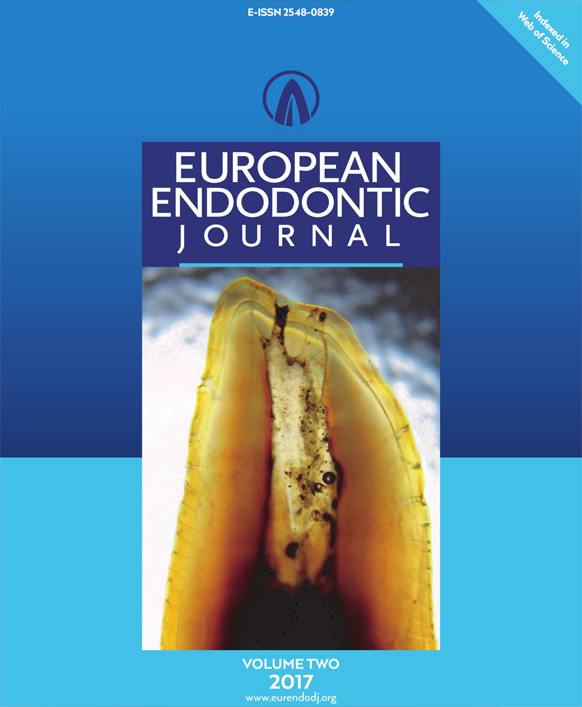
European Endodontic Journal
Yazarlar: Ruth Pérez Alfayate, Montse Mercade, Jorge Vera Rojas, Roberto Estévez Luaña, Ana Antoranz Pereda, Juan Algar, Rafael Cisneros Cabell
Konular:-
DOI:10.14744/eej.2018.75047
Anahtar Kelimeler: Curved root canals,Glide path,Instrumentation and rotary,PathFile,ProFinder
Özet: Root canal shaping is as important as irrigation and filling when attempting to obtain a high success rate in endodontic treatment. The creation of a glide path before the use of rotary instruments reduces the risk of posterior iatrogenic errors. The objective of the present study was to evaluate instrumentation time and root canal transport after using 2 different glide path rotary systems. Methods: In total, 60 mesiobuccal root canals of mandibular molars, with curvature angles between 11° and 82°, were standardized to measure 15 mm. The specimens were divided into 2 groups, depending on their angles of curvature (11º–38º and 39º–82º), and further divided into 4 groups (n=15). Two groups were instrumented using the PathFile system and the other 2 using the ProFinder system. The angle and radius of curvature were measured at the most abrupt angle of curvature before and after instrumentation. Both measurements were analyzed and compared using AutoCAD software to determine canal transportation. Curvature angles were compared using Student’s t test and the radii of curvature using the Wilcoxon test. The time for instrumentation was also evaluated using Student’s t tests. Results: There were no statistically significant differences between the two systems with respect to root canal transport (P>0.05); however, the ProFinder system took a longer time to create a glide path (P=0.004) Conclusion: Both systems were equally effective in creating a glide path; however, the PathFile system proved to be faster than the ProFinder system.